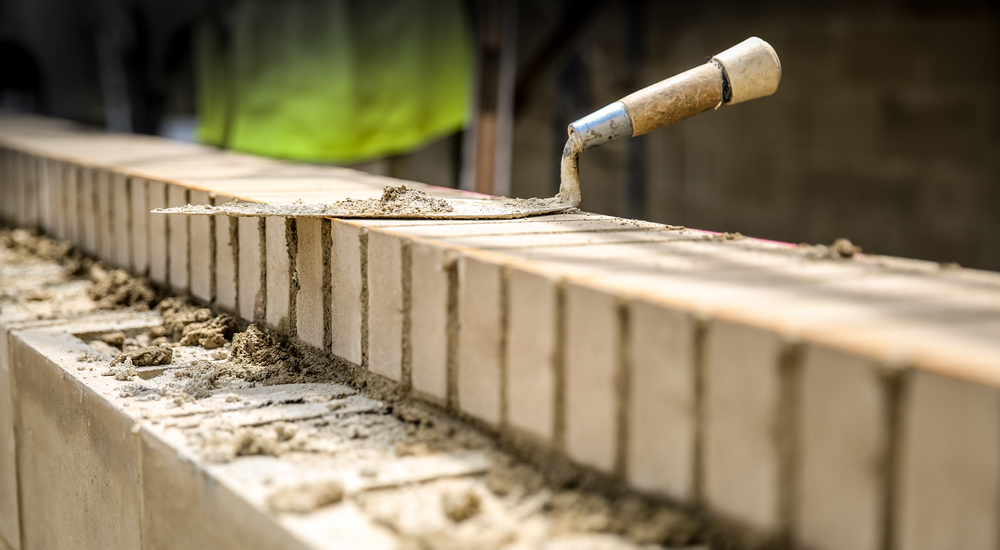
Choosing the Right Masonry Materials for Your Commercial Building
When planning a commercial building project, one of the most critical decisions you’ll face is selecting the right masonry materials. The materials you choose will influence not only the aesthetics and durability of your building but also its overall cost and energy efficiency. In Racine, WI, the climate and local building regulations further impact material choices, making it essential to weigh the pros and cons of various masonry options. In this guide, we’ll help you navigate the selection process by comparing brick vs. concrete block for commercial projects and examining the best masonry materials for commercial construction in Racine, WI.
Why Masonry Materials Matter in Commercial Construction
Masonry materials form the backbone of any commercial building, providing structural integrity, thermal insulation, fire resistance, and aesthetic appeal. Choosing the wrong material can lead to costly repairs, energy inefficiencies, and a lackluster appearance. On the other hand, making the right choice ensures that your building stands the test of time while meeting your budget and design goals.In Racine, WI, where commercial projects must withstand cold winters, wind, and moisture, it’s important to focus on materials that can offer durability and energy efficiency. Whether you’re building an office complex, retail store, or industrial facility, selecting high-quality masonry materials is essential for long-term success.
Understanding the Basics: Brick vs. Concrete Block
When it comes to masonry materials, brick and concrete block are two of the most popular choices for commercial projects. Each has its own advantages, and the decision will largely depend on your project’s specific needs, budget, and design preferences.
1. Brick: The Timeless Classic
Brick has been used in construction for thousands of years, and for good reason. Its classic aesthetic appeal, durability, and relatively low maintenance needs make it an ideal choice for many commercial buildings.
Advantages of Using Brick for Commercial Projects:
- Aesthetic Appeal: Brick’s timeless look can enhance the visual appeal of any commercial building. Whether you’re going for a traditional or modern design, brick can be adapted to suit various architectural styles.
- Durability: Brick is extremely durable and resistant to environmental factors like wind, fire, and moisture. This makes it a great choice for commercial buildings in Racine, WI, where weather conditions can be harsh.
- Energy Efficiency: Brick walls offer good thermal insulation, helping regulate indoor temperatures. This can result in energy savings, especially during Wisconsin’s cold winters.
- Low Maintenance: Brick buildings require relatively little maintenance over the years. Occasional cleaning and repointing of the mortar joints are usually all that’s needed to keep them in good condition.
Disadvantages of Brick:
- Cost: Brick can be more expensive upfront than other masonry materials, both in terms of material cost and labor.
- Installation Time: Brick construction can take longer than concrete block due to the individual placement of each brick, increasing labor costs and extending project timelines.
2. Concrete Block: A Modern Powerhouse
Concrete block is another commonly used masonry material, particularly for larger commercial projects that require robust structural support. It is often chosen for its strength and versatility in commercial construction.
Advantages of Using Concrete Block for Commercial Projects:
- Strength and Durability: Concrete block is incredibly strong and can support larger loads than brick. This makes it ideal for multi-story commercial buildings or industrial projects requiring reinforced structures.
- Cost-Effective: Concrete block is generally less expensive than brick, making it a cost-effective option for commercial projects, particularly those with large footprints.
- Faster Construction: Because concrete blocks are larger than bricks, they can be installed more quickly, reducing labor costs and speeding up the construction process.
- Fire and Sound Resistance: Concrete block walls provide excellent fire resistance and can act as effective sound barriers, making them ideal for buildings where safety and noise reduction are priorities.
Disadvantages of Concrete Block:
- Aesthetic Limitations: Concrete block lacks the natural, classic appearance of brick. While it can be covered with stucco or veneer for a more appealing finish, this adds to the overall cost and complexity of the project.
- Thermal Insulation: While concrete blocks are strong, they do not offer the same level of thermal insulation as brick. This could result in higher heating and cooling costs, particularly in Racine’s colder months.
- Moisture Vulnerability: Concrete blocks are more porous than brick, which can lead to moisture infiltration if not properly sealed and maintained.
Factors to Consider When Choosing Masonry Materials for Commercial Construction
When deciding between brick vs. concrete block for your commercial project in Racine, WI, several key factors should be considered:
1. Climate and Environmental Conditions
Racine experiences cold winters, high humidity, and precipitation, so the masonry materials you choose must withstand these environmental conditions. Brick is naturally more resistant to moisture and freeze-thaw cycles, while concrete block may require additional waterproofing treatments.
2. Building Purpose and Design
Consider the intended use of the building. For example, a commercial office complex may prioritize aesthetics, making brick a more suitable option. On the other hand, an industrial warehouse may need the strength and cost-efficiency of concrete block. The overall design and architectural goals of your project should guide your material choice.
3. Budget and Timeline
While brick tends to be more expensive and time-consuming to install, it could be a worthwhile investment for long-term durability and energy savings. Concrete block, on the other hand, may reduce upfront costs and speed up construction, making it a practical option for budget-conscious projects with tight deadlines.
4. Energy Efficiency
With energy costs being a significant factor in commercial operations, selecting a material that offers good thermal insulation is critical. Brick provides better thermal performance than concrete block, potentially reducing heating and cooling costs. However, if you opt for concrete block, adding insulation to the walls can help mitigate this disadvantage.
5. Maintenance and Longevity
Consider the long-term maintenance requirements of your chosen material. Brick is low-maintenance and can last for decades with minimal upkeep, while concrete block may require more frequent sealing and waterproofing treatments, particularly in a moisture-rich environment like Racine.
Best Masonry Materials for Commercial Construction in Racine, WI
Given Racine’s unique climate and commercial building requirements, both brick and concrete block are viable options, depending on your specific project goals. However, it’s important to understand that other masonry materials may also be worth considering based on their performance in local conditions.
1. Brick Veneer
Brick veneer offers the aesthetic benefits of traditional brick with a lighter, more cost-effective structure. It can be applied to a concrete block or wood frame structure, providing the appearance of a brick building without the same level of expense or labor.
2. Stone
Natural stone, such as limestone or granite, is another durable and aesthetically pleasing option. While more expensive than both brick and concrete block, stone can offer superior longevity and is particularly suited for high-end commercial buildings or those requiring a prestigious appearance.
3. Autoclaved Aerated Concrete (AAC)
AAC is a lightweight, precast building material that offers excellent thermal insulation, fire resistance, and durability. While not as common as brick or concrete block, AAC is growing in popularity for commercial projects where energy efficiency and quick installation are priorities.
Making the Right Choice for Your Commercial Building
When it comes to choosing between brick vs. concrete block for commercial projects, there is no one-size-fits-all solution. Both materials offer distinct advantages and disadvantages, and your choice should be guided by factors such as budget, aesthetic goals, structural needs, and the specific environmental conditions in Racine, WI.
For projects where aesthetics, energy efficiency, and long-term durability are top priorities, brick may be the best choice. However, for large-scale commercial buildings or industrial applications where strength, speed of construction, and cost-effectiveness are key concerns, concrete block might be the superior option.
Regardless of your choice, working with an experienced contractor familiar with Racine’s climate and building codes will ensure you select the best masonry materials for your commercial construction project.
Need a Masonry & Concrete Contractor in Racine, WI?
Welcome to Langenfeld Masonry & Concrete! Family owned and operated, Langenfeld Masonry & Concrete has been servicing Racing, Kenosha, and South Milwaukee counties since 1912. Our years of experience in the industry have built us a reputation within the community as the premier masonry and concrete contractors in the area. At Langenfeld Masonry & Concrete, we specialize in driveways, patios, sidewalks, and concrete repair. In addition, we also offer basement waterproofing, foundation pouring, repair, and more. For five strong generations, we have been dedicated to being the best at what we do, and it shows. Come see what sets us apart from the competition and why we have truly passed the test of time. Call us today for your free estimate.
More...
Categorised in: Masonry Contractor




